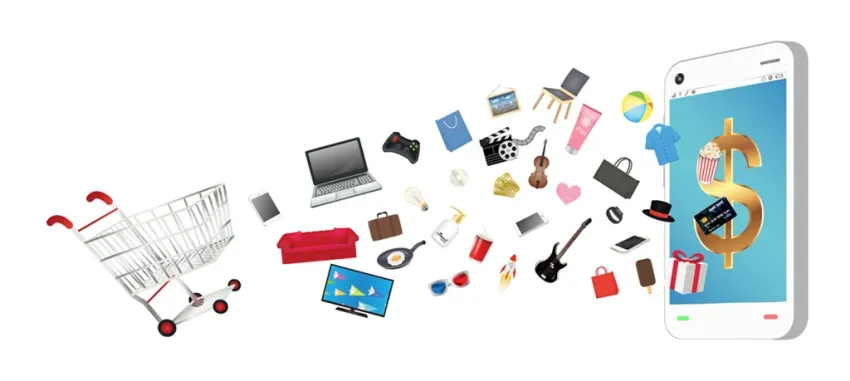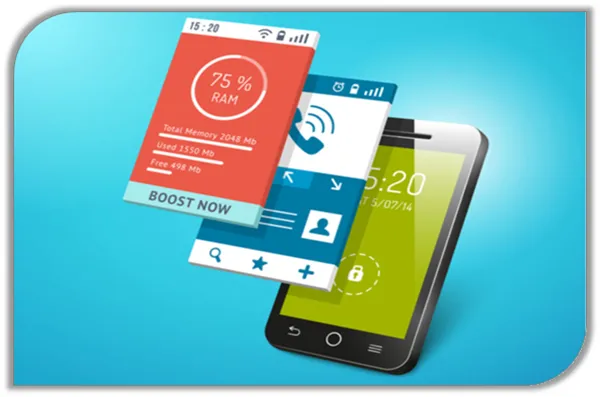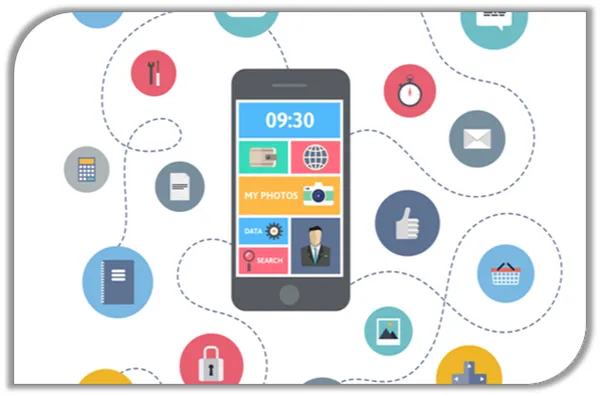
Menu

Menu

Few people get through the day without turning to a number of apps on their mobile devices to access various services. In fact, we have become accustomed to using our mobile devices wherever we are—at work, home, on the street, in bed, and even in our cars. Consequently, the likelihood is that you are reading this very article from a mobile device.
Furthermore, the convenience and accessibility provided by mobile apps have transformed how we interact with technology, making it an integral part of our daily lives. As a result, organizations must recognize this shift and adapt their strategies to leverage mobile technology effectively.
Whether to video chat with friends and family, order groceries and takeaways, or locate an address, we increasingly rely on an ever-growing number of apps. In fact, many of us often find ourselves downloading multiple apps for the same service, seeking the best options available. Moreover, this trend reflects our desire for convenience and efficiency in our daily tasks, as we strive to simplify our lives through technology.

If you consider only video chat, there are a vast number of often free apps with similar features, including:
♦ WhatsApp
♦ Signal
♦ Google Duo
♦ Instagram
♦ Tango
♦ Snapchat
♦ Skype
♦ Viber
♦ Messenger
♦ Zoom
♦ Hangouts
♦ Microsoft Teams
♦ YeeCall
♦ Discord
♦ JusTalk
♦ KakoTalk
♦ Marcopolo
♦ Glide
♦ IMO
♦ Line
According to Buildfire statistics in 2021 (https://buildfire.com/app-statistics):
♦ Apple App Store holds 1.96 million apps, and Google Play Store has 2.87 million apps
♦ The average smartphone owner uses 10 apps per day and 30 apps each month
So what is the problem with having so many mobile apps on your device? Here are some essential factors to keep in mind:
Most devices store mobile apps on the physical device, which has a limited capacity. Consequently, storing too many apps fills the storage space and reduces device performance. Typical issues include being unable to take and store pictures, update the device, or download app updates. Additionally, space taken up by infrequently used apps may prevent you from using those essential for everyday tasks, which can be frustrating.
Moreover, as apps accumulate, the device can experience slower loading times and lag, making it increasingly difficult to access the applications you use most frequently. Therefore, it becomes crucial to regularly review and manage your app collection. By deleting unused or rarely used apps, you can free up storage space, enhance your device’s performance, and ensure that your most important applications are readily accessible. Ultimately, maintaining a streamlined selection of apps not only optimizes your device’s functionality but also contributes to a smoother and more enjoyable user experience.

As you install apps on your device, you are often prompted with questions asking for permission to access your data or device features. While most apps are harmless and use this access to offer their services, others may harbor viruses or malicious intent. Therefore, it is essential to exercise caution when granting permissions.
Moreover, installing only the apps you plan to use significantly reduces the likelihood of encountering security issues. By being selective about the applications you download, you can maintain better control over your device’s security and minimize the risks associated with unnecessary access to your personal information. Additionally, regularly reviewing the permissions granted to existing apps can further enhance your device’s security, ensuring that you only allow access to those features that are truly necessary for optimal functionality. Ultimately, being vigilant about app permissions and installation choices will help protect your device and personal data from potential threats.
A benefit of using mobile apps is that they are often regularly updated with new features and bug fixes. However, when you have a large number of apps on your device, the sheer volume of notifications and the time taken to perform updates may become onerous. Consequently, managing these updates can lead to frustration, as you may find yourself constantly addressing notifications instead of enjoying the applications.
Moreover, frequent updates can consume significant amounts of storage space and bandwidth, which can negatively impact your device’s performance. Therefore, it is advisable to periodically assess the apps you have installed and consider removing those that you no longer use. By doing so, you can streamline your device, reduce the frequency of update notifications, and ensure that your essential apps receive updates without unnecessary delays. Ultimately, maintaining a curated selection of apps not only enhances your experience but also optimizes your device’s functionality.
As with computer software, many mobile apps run processes in the background. Consequently, even when you are not actively using an app, it could still consume processing power and slow down your device. This issue is less of a problem on newer devices with larger RAM; however, older devices often experience a significant reduction in performance, which can render them almost unusable.
Moreover, background processes may lead to increased battery consumption, further exacerbating the usability issues on older devices. Therefore, it is essential to regularly check which apps are running in the background and close those that are not needed. By doing so, you can free up processing resources, improve device performance, and extend battery life. Ultimately, being mindful of background app activity is crucial for maintaining an optimal mobile experience, especially on older devices.
The majority of mobile apps come with automatic notifications. While it is indeed possible to turn off notifications for individual apps one by one, this process can be time-consuming and cumbersome. As a result, many users often neglect to disable notifications, which can lead to an overwhelming influx of alerts that disrupt daily activities.
Moreover, constant notifications can contribute to distractions, making it challenging to focus on essential tasks. Consequently, users may experience increased stress or anxiety due to the pressure to respond immediately. Therefore, it is advisable to consider adjusting notification settings in bulk or using the “Do Not Disturb” feature to manage interruptions effectively. By taking these steps, users can create a more streamlined and manageable mobile experience, ultimately enhancing productivity and well-being.
The more mobile apps you have installed, the harder it becomes to locate them when needed. Although most suppliers have features in their operating systems that enable the grouping of apps under headings or categories for easier retrieval, you are still likely to need to remember which category contains a particular app. Moreover, if you have numerous categories, finding the desired app can become increasingly frustrating.
While mobile apps are supposed to make your life easier and help you be more efficient and productive, too many apps can have the opposite effect. In fact, excessive clutter on your device may lead to confusion and wasted time searching for the right application. Therefore, it is essential to regularly evaluate and declutter your app collection, ensuring that you only keep the apps that truly enhance your daily activities and streamline your tasks. By doing so, you can maximize the benefits of mobile technology while minimizing distractions.

As mobile apps become an integral part of daily life, their proliferation can lead to a diminishing user experience. Users may initially find excitement in downloading new applications; however, over time, the sheer volume of apps can create a sense of chaos. For instance, when users encounter an overload of notifications and constant updates, it can contribute to frustration rather than convenience. Consequently, this overload may prompt individuals to disengage from apps altogether, ultimately reducing their productivity and enjoyment.
To mitigate the challenges associated with having too many apps, implementing effective management strategies is crucial. One practical approach involves creating a routine for regularly assessing app usage. By taking the time to evaluate which apps are frequently used and which are not, users can make informed decisions about what to keep and what to uninstall. Furthermore, utilizing folders to group similar apps can provide a more organized interface, making it easier to locate desired applications quickly.
Additionally, setting aside time to declutter apps can lead to a more streamlined device. For example, dedicating a few minutes each week to review and remove unnecessary applications can significantly enhance the device’s performance and usability.
In today’s app-centric world, it is essential to prioritize quality over quantity. Rather than downloading multiple apps for similar functions, users should focus on finding the best app that meets their needs. By doing so, they can enjoy a more efficient and satisfying experience without the complications that come with excessive options. Moreover, investing time in researching and selecting high-quality applications can lead to greater satisfaction and usability in the long run.
Embracing a minimalist approach to mobile app usage can significantly improve overall user satisfaction. This philosophy encourages users to keep only the most essential applications that genuinely enhance their daily activities. By adopting this mindset, individuals can create a more functional and efficient digital environment. Additionally, minimalism fosters a sense of clarity and focus, allowing users to engage with technology more meaningfully and purposefully. Ultimately, this shift can lead to a healthier relationship with mobile devices, where technology serves as a tool rather than a source of stress.
Effective app management not only improves usability but also enhances security. By regularly evaluating installed applications, users can minimize potential risks associated with outdated or unnecessary apps. Unused apps may pose vulnerabilities, especially if they require permissions that expose personal data. Therefore, taking proactive steps to manage apps can contribute to a more secure digital environment. In addition, maintaining only essential applications enables users to have better control over their privacy settings, ultimately fostering a safer mobile experience.
Finally, promoting a positive mobile culture within organizations or social circles can encourage mindful app usage among users. By sharing best practices for app management and emphasizing the benefits of streamlined app collections, individuals can support one another in creating a more productive digital landscape. Furthermore, fostering discussions about the impact of mobile technology on daily life can lead to greater awareness and more responsible app usage habits. Ultimately, cultivating a positive mobile culture encourages users to prioritize efficiency and well-being, enhancing their overall relationship with technology.
Contact us at HRBluSky today to learn about how we are providing organisations and individuals with a single app for video chat and calls, buying and selling, ordering food, locating the nearest facilities – and so much more.
Alignment
Article
Audit
Automation
Benefits
Candidate
Communication
Compliance
Digitalisation
Digital Technology
Diversity
Emirates Id Application
Employee Experience
ESS
Feedback
Health and Safety
HRMS
HR Strategy
HR System UAE
Human Resource Management
Human Resource Management Systems
Job Roles
Learning and Development
Onboarding
Outsource
Payroll
Payroll Management System
Payroll Processing
Performance
Performance Management
Personalisation
Recruit
Recruiting
Recruitment
Remote Working
Rewards
Security
Service Providers
Skills
Smart
Survey
Virtual
Visa Cancellation
Work Environment
Workforce
© 2026 Pruvity HR Solutions Pvt Ltd, Madurai, India